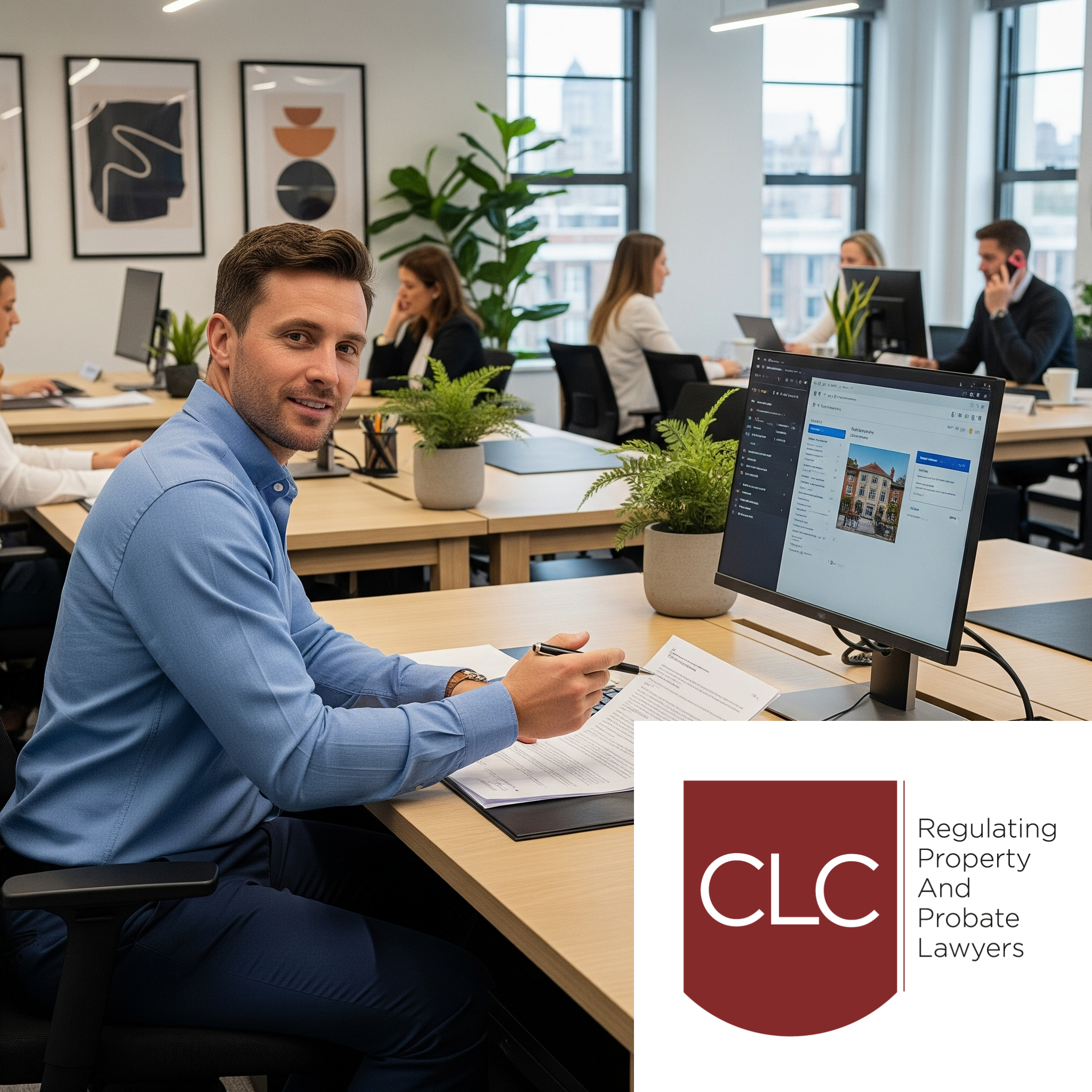Conveyancing Course Funding: Your Complete Guide to Grants, Loans & Sponsorship
From interest-free payment plans and employer support to government apprenticeships and charitable trusts, discover every option to finance your conveyancing qualification.
Published: 07 June 2025
Securing funding for professional qualifications can often feel like navigating a complex maze. For those aspiring to a career in conveyancing, however, there are numerous avenues available that can make this specialised and rewarding path highly accessible and affordable, especially when compared to the significant investment required to qualify as a solicitor.
This article explores the various funding options for conveyancing courses, from self-funding with flexible payment plans to employer sponsorship, government-backed apprenticeships, and other less common but valuable sources.

The Affordable Alternative: Conveyancing Course Fees
One of the immediate attractions of pursuing a conveyancing qualification, such as the CLC Diplomas, is its affordability relative to becoming a solicitor.
- Cost Comparison: While the total cost of qualifying as a solicitor (including a law degree, conversion course if applicable, SQE preparation, and exam fees) can range from £45,000 to over £60,000, the fees for a Licensed Conveyancer qualification are significantly lower. For instance, the Level 4 Diploma in Conveyancing Law and Practice costs around £2,000, and the Level 6 Diploma around £2,000. This makes the entire qualification a fraction of the cost.
1. Privately Funding: Flexible and Interest-Free Options
For many, self-funding offers the most control over their study path. Recognising the need for flexibility, many approved training providers for conveyancing qualifications offer attractive payment plans:
- Fees Split Over 12 Months (No Interest): A common offering from providers is the ability to spread the course fees over a period, often up to 12 months, without incurring any interest. This allows students to manage their finances effectively without the burden of an upfront lump sum. For example, a Level 6 Diploma costing £1,920 could be paid at approximately £160 per month over a year. This makes the monthly cost very manageable for individuals.
Level 4 Diploma
Conveyancing Law & Practice
2. Employer Sponsorship: Invested in Your Future
Many law firms, conveyancing practices, and even property development companies recognise the value of investing in their staff's professional development. Employer sponsorship is a fantastic way to fund your conveyancing qualification:
- Full or Partial Course Fee Sponsorship: Employers may agree to cover the entire course fee or a significant portion of it. This is particularly common if they see your qualification as directly beneficial to their business, filling a skills gap, or strengthening their team.
- Repayment Clauses: It's common for employer sponsorship agreements to include a "clawback" or repayment clause. This typically states that if you leave the company within a certain period (e.g., 1-3 years) after completing your qualification, you may be required to repay a proportion of the course fees. This protects the employer's investment. Always review such agreements carefully.
Level 6 Diploma
Conveyancing Law & Practice
3. Apprenticeships: Government-Funded Earn-While-You-Learn
Apprenticeships offer a fully government-funded route to becoming a Licensed Conveyancer, allowing you to "earn while you learn.
- How it Works: Conveyancing apprenticeships combine paid employment with structured training, leading to a recognised qualification. Your employer covers the cost of your training and assessments, while you earn a salary.
- Apprenticeship Levy:
- Levy-Paying Employers: Large employers (with an annual pay bill over £3 million) pay into the Apprenticeship Levy. They can use these funds to cover the training and assessment costs of apprentices, including those on conveyancing programmes. They can also transfer up to 25% of their unused levy funds to other employers.
- Non-Levy Paying Employers: Smaller employers (with an annual pay bill under £3 million) do not pay the levy. The government co-invests with them, typically covering 95% of the apprenticeship training costs, with the employer contributing the remaining 5%. For employers with fewer than 50 employees, the government may even cover 100% of the training costs for apprentices aged 16-21. This makes hiring and training an apprentice a very attractive and cost-effective option for many businesses.
4. Advanced Learner Loans: Government-Backed Support
The Advanced Learner Loan is a government-funded student loan available to individuals aged 19 or over who are studying eligible Level 3, 4, 5, or 6 qualifications at an approved college or training provider in England.
- How it Works: The loan covers the cost of your course fees, and you don't start repaying until you're earning above a certain threshold (similar to undergraduate student loans). The interest rate is typically lower than commercial loans. Many CLC-accredited conveyancing diplomas are eligible for Advanced Learner Loans, making it a viable option for many students who are self-funding.
5. Other Funding Options
Beyond the most common routes, several other avenues might offer financial assistance for your conveyancing studies:
- Turn2us Grants Search: This is one of the most comprehensive and widely recommended free tools. You input your personal circumstances, location, and needs, and it matches you with grants you might be eligible for. Many of these grants are from smaller, local charities.
Website: https://grants-search.turn2us.org.uk/ - The Scholarship Hub: While often associated with university students, The Scholarship Hub also lists various grants and scholarships for UK/EU students, including mature learners and those pursuing professional qualifications.
Website: https://www.thescholarshiphub.org.uk/adult-scholarships-funding-and-scholarships-mature-students/ - Local Authority / Council Websites: Your local council might have information about local charities or educational trusts specific to your area. Some smaller trusts operate within specific counties, cities, or even boroughs.
- Job Seekers and Government Schemes: In some cases, if you are unemployed or seeking to retrain, local government initiatives or job seeker support programmes might offer funding or guidance. This is less common for professional qualifications but worth investigating with your local Job Centre Plus or skills development agencies.
- Professional Qualification Loans: Some financial institutions or specialist loan providers offer loans specifically for professional qualifications. While these are commercial loans and will incur interest, they can be an option if other funding sources are unavailable. Always compare interest rates and terms carefully.
- Charitable Foundations and Bursaries: Several charities and foundations aim to support individuals pursuing legal education, especially those from underrepresented backgrounds or facing financial hardship.
It's crucial to understand that most charitable grants come with very specific eligibility criteria (e.g., location, background, previous work experience, income level, specific field of study). You'll need to research each one carefully.
Here are some examples of trusts and charities that might offer support to adult learners, but always check their current criteria for the specific qualification you're pursuing:
- Thomas Wall Trust:
- Focus: Supports motivated adults living in the UK to undertake education and training that will increase their chances of employment.
- What they offer: Grants up to £1,500 towards accredited vocational training (up to Level 3, but they do state "Courses that aren't eligible for a 19+ Advanced Learner Loan" are prioritised, so it's worth checking if higher levels might be considered if you meet other criteria). They also offer funds for associated costs like childcare, travel, and equipment.
- Eligibility: Typically requires being unemployed for at least 6 months in the last 2 years, low income, and not having a degree. Note: Your law degree might make you ineligible for this specific trust unless they make exceptions for higher-level vocational retraining.
- Website: https://www.thomaswalltrust.org.uk/grants-for-individuals/
- Equity Charitable Trust (for those with specific work experience):
- Focus: Supports individuals who want to retrain, sharpen skills, or develop a second income stream.
- Eligibility: Requires demonstrating 10 years of adult professional work. They specifically state they "don't help musicians, students in higher education or amateurs" but rather those looking to re-qualify or enhance existing careers. The course must lead to a recognised qualification.
- Website: https://www.equitycharitabletrust.org.uk/retraining-and-education/
- The Legal Social Mobility Fund:
- Focus: Provides grants to aspiring solicitors from disadvantaged backgrounds. While it mentions solicitors, sometimes their scope can be broader for general legal training. It's worth investigating if your background aligns with their criteria.
- Small Local Charities and Educational Endowments:
- Many smaller trusts and charities have very specific geographical or vocational criteria (e.g., for people from a certain town, former employees of a specific company, or those pursuing a particular trade). These are best found using databases like Turn2us, or by checking with your local library, community advice centres, or even historical societies.
Examples from search results include:
- Mynshull's Educational Foundation (Manchester-focused, under 30 usually, disadvantaged background): Primarily for younger people but shows the type of local trusts that exist.
- Gaddum (administers various Manchester-based trusts): Some for low-income individuals, some with specific age/occupation criteria.
- The Yapp Charitable Trust: Offers grants to registered charities, not individuals, but education is one of their themes. This would apply if an organisation is applying on your behalf.
Important Considerations When Applying:
- Eligibility Criteria: Read the criteria very carefully. If you don't meet them, your application will likely be rejected.
- Application Process: Most trusts require a formal application form, often with a personal statement, financial details, and supporting evidence.
- Deadlines: Be mindful of application deadlines, as many trusts have specific windows for applications.
- No Guarantees: Funding is often limited and highly competitive.
- Stacking Funding: It's often possible to combine different sources of funding (e.g., a small grant from a charity, an Advanced Learner Loan, and some private savings).
While direct "property law" specific charitable grants for adults are less common than for, say, medical or social work degrees, the general "adult education" and "vocational training" categories are where you'll find more opportunities. Use the search tools provided to tailor your search to your specific circumstances.
Making Your Conveyancing Career a Reality
The availability of diverse funding options significantly lowers the barrier to entry for a rewarding career in conveyancing. Whether you choose to leverage flexible private payment plans, secure employer sponsorship, benefit from government-backed apprenticeships or loans, or explore charitable grants, there are practical ways to finance your qualification.
The affordability and direct nature of conveyancing courses, especially when compared to the broader and more expensive solicitor qualification, make it an attractive and accessible path for anyone looking to specialise in property law. Don't let financial concerns be a roadblock; explore these options to invest in your future as a qualified conveyancer.
Level 4 Diploma
Conveyancing Law & Practice
Level 6 Diploma
Conveyancing Law & Practice
More related posts

Become a Property Lawyer: No Law Degree Needed!

What Can You Do With a Law Degree Without Being a Solicitor?











